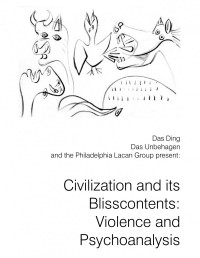On Violence: Civilization and its Blisscontents
On Violence: Civilization and its Blisscontents Violence today seems not to address only our physical bodies and sense of safety: Columbine, Sandy Hook, Virginia Tech, ISIS, but also our positions as subjects: the medicalized body, the surgically aesthetically improved body, civic subjectivity reduced to consumption, mental health reduced to pharmacology. Timothy McVeigh said, “the government is increasingly hostile,” and blowing up the Murrah Federal Building in Oklahoma City was what he called “the just response.” This conference asks questions about violence and its relationship to the Other. Freud famously showed how civilization brought discontent, a necessary consequence of repression. Today, with the command to enjoy as part of the social symbolic entreaty, perhaps we can say that ...Read More
Conference: Psychoanalysis and Laughter
Psychoanalysis and Laughter What does psychoanalysis have to tell us about laughter? In his Jokes and Their Relation to the Unconscious (1905), Freud famously illuminated the Witz’s linguistic and economic properties. Linguistically, the Witz “works” like the dream (by condensation and displacement); economically, it bypasses the “inhibiting factor” both in the teller of the joke and in the listener. Jokes are serious business for Freud: like dreams, they allow aggression an acceptable form, establishing a social tie while satisfying repressed wishes. Jokes are serious business for Lacan too. Of necessity, the analysand speaks “à coté du vrai” (beside truth) because speech ignores the real. In the symptom, however, the real manifests itself by not stopping, just like the persistent grin of...Read More

